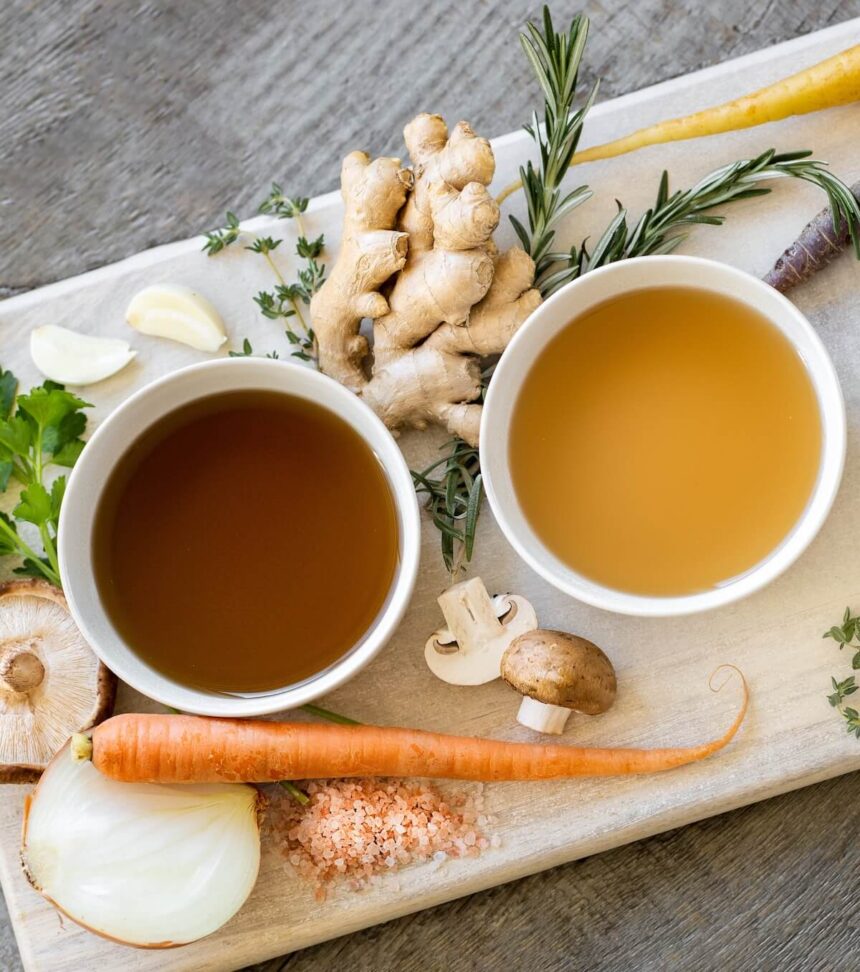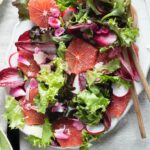Acid reflux rates are rising in the US and other parts of the world. And chances are, you or someone in your social circle knows the pain and discomfort of acid reflux. Luckily, there are dietary and lifestyle changes you can make to relieve acid reflux and feel better overall.
Today, we’re going to discuss the acid reflux diet and how it can help reduce the pain and discomfort associated with this condition.
Acid Reflux Versus Heartburn
You’ve probably heard the terms “acid reflux”, “GERD” and “heartburn” used interchangeably. And while they are similar, they’re still quite different from each other.
Here’s the difference:
- Acid reflux is a medical condition;
- GERD is a severe type of acid reflux;
- heartburn is a symptom of both acid reflux and GERD.
Therefore, if you have acid reflux or GERD, there’s a good chance that you will experience heartburn since it’s a symptom of these two conditions.
What Is Acid Reflux?
In order to understand what acid reflux is, it’s important to know a little bit about the digestive system. Food passes from your mouth, down your esophagus, and then into the stomach. Once the food reaches the stomach, the lower esophageal sphincter muscle tightens to keep the food and stomach acid in the stomach.
If the lower esophageal sphincter muscle doesn’t tighten though, the strong acidic juices in your stomach can climb up the esophagus, where they can cause heartburn, along with other symptoms, like a sore throat, a bitter taste in your throat or a sour taste in your mouth.
These symptoms occur because the stomach acid is meant to stay in the stomach and break down food. In the esophagus, this same acid can cause pain and discomfort. If left untreated, it can lead to serious damage since the acid erodes the esophagus. In some cases, severe acid reflux can even lead to cancer.
Acid reflux, and therefore heartburn, can be particularly bad when an individual lies down because it’s easier for stomach acids to flow up the esophagus when the body is horizontal.
What Is the Acid Reflux Diet?
Dr. Josh Axe, DNM, DC, CNS, reminds that “Virtually every research study done on GERD and acid reflux points to a poor, processed diet as a contributing factor. On top of that, it’s easy to overeat processed foods and in the process to neglect mindful eating practices.”
So, if a poor diet is a contributing factor to acid reflux, it makes sense that improving your diet can help a lot.
Foods to Avoid on Acid Reflux Diet
It’s a good idea to avoid processed foods in your diet. Here’s a quick breakdown of common processed foods you may be eating regularly:
- Processed meats, such as deli meats, bacon, sausages, and pepperoni
- Prepared foods
- Frozen foods, including microwave dinners and pizza
- French fries, onion rings, and fried food
- Fatty cuts of meat
- Refined grains, including couscous and white rice
- Breads, pastries, and baked goods
- Most condiments
- Soda
- Caffeine
- Junk food
Other than fried, fatty, or processed foods, however, many other foods may have to be avoided if you have acid reflux. Listen to your body’s cues to see which specific foods trigger your body.
Foods That Help With Acid Reflux
For some individuals, eliminating processed foods from their diet can be a big deal, especially if processed foods make up a significant part of the diet. However, eliminating them can provide some much-needed relief.
The good news is that even though you have to avoid tasty processed foods, you get to replace them with even tastier and healthier alternatives.
Here’s a quick acid reflux diet food list:
Probiotic Foods
Include probiotic foods in your diet, like yogurt, kefir, kombucha, and fermented vegetables, including pickled beets and sauerkraut.
Just be sure you find high-quality products that don’t contain added sugar or nasty preservatives. These probiotic foods help support the good bacteria in the gut. This, in turn, can help to support and soothe the digestive tract.
Bone Broth
Homemade bone broth made with grass-fed beef bones provides nourishing nutrients to help heal and protect the gut.
Ginger
Even though ginger has such a strong flavor, it actually acts as an anti-inflammatory food and can be used as a natural treatment for digestive problems, including acid reflux.
You can add fresh ginger to your recipes or add a couple of slices to your tea to alleviate pain and discomfort.
Apple Cider Vinegar
Apple cider vinegar has a wide range of natural remedy uses, and one of them is to help balance the acid within the stomach. By doing so, it can help to reduce acid reflux symptoms.
To use apple cider vinegar correctly, add one tablespoon to a glass of water and drink it about five to 10 minutes before eating.
Coconut Water
Dr. Axe recommends drinking coconut water before bed to help reduce nighttime acid reflux symptoms.
Vegetables
Green leafy vegetables, broccoli, cauliflower, artichokes, asparagus, cucumbers, pumpkin, and squash are all great foods to eat on the acid reflux diet.
They are all low in fat and sugar and can help prevent the stomach from producing too much acid.
Non-citrus Fruits
Apples, pears, melons, and bananas are good choices. However, avoid citrus fruits like lemons, limes, oranges, tangerines, grapefruits, etc. Pineapples, tomatoes, and salsa can also cause irritation.
Healthy Fats
Healthy fats help soothe the digestive system. Top fats include coconut oil, ghee, olive oil, avocado oil, flaxseed oil, and walnuts. Be sure to avoid partially hydrogenated fats or trans fats, such as margarine and canola oil.
Lean Meats
The acid reflux diet makes room for chicken and turkey. You can also enjoy fish, such as wild-caught salmon and tuna, which provide healthy sources of healthy fats and protein.
As you see, the general practice involves eating non acidic foods that soothe the gut.
Lifestyle Changes for Acid Reflux
As with many other health conditions, diets can help a lot. But diet isn’t the only lifestyle change that can help. If you suffer from acid reflux, it’s important to make other lifestyle adjustments.
Here’s a quick rundown of lifestyle factors that can trigger acid reflux:
- Overweight and obesity
- Chronic stress
- Overeating
- Eating too quickly
- Eating trigger foods, such as processed foods and meats, foods high in sugar and refined oils, including fried foods
If these lifestyle factors sound familiar, and you suffer from acid reflux, it’s a good idea to adopt the acid reflux diet and address these five lifestyle factors that aggravate acid reflux, too.
This holistic approach can help you reduce pain and discomfort and find some much-needed relief from acid reflux.








